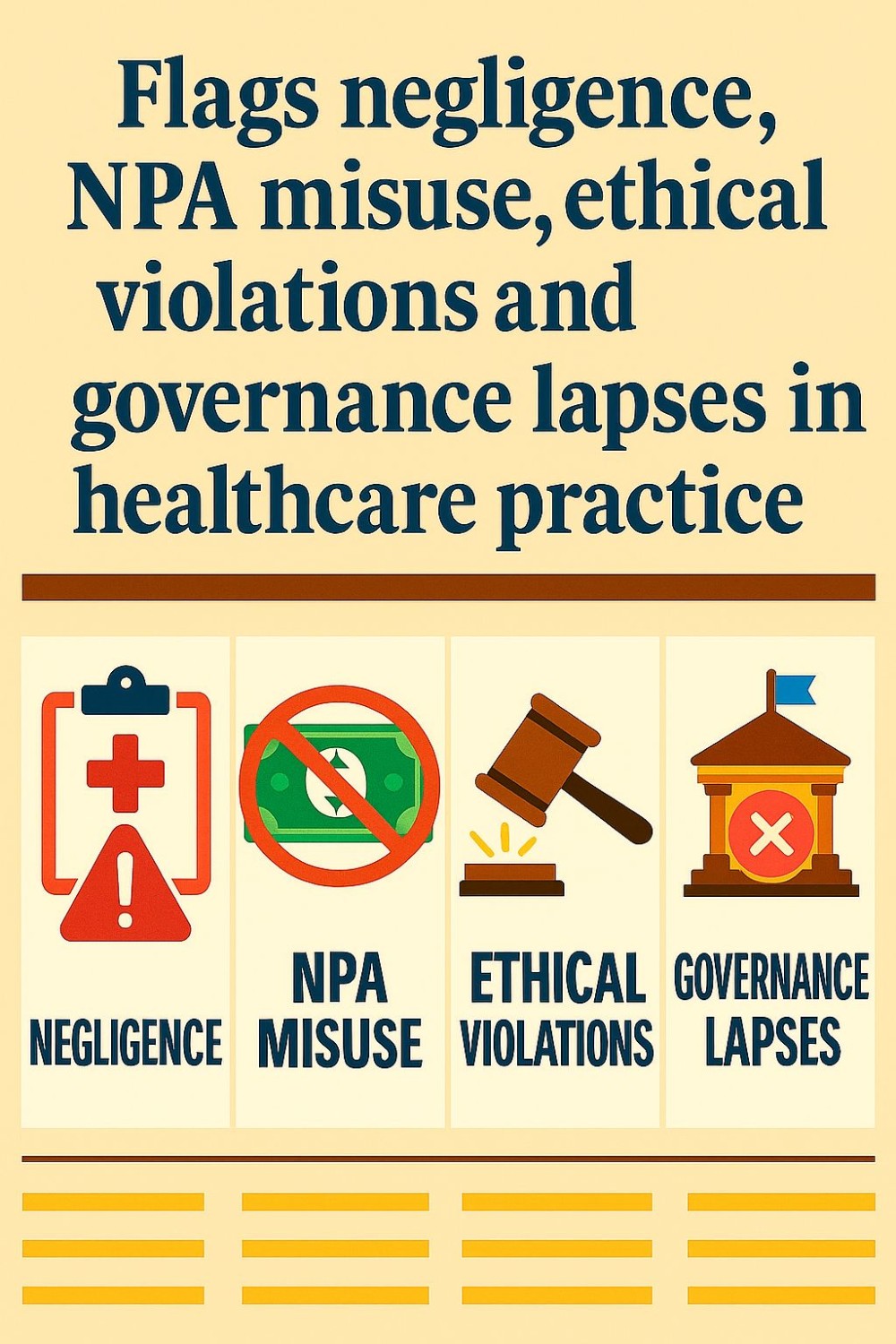
KOHIMA, JULY 22 (MExN): The Nagaland Medical Council (NMC), in its Executive and Ethical Committee meeting held on July 18 has issued a detailed statement highlighting critical concerns related to medical registration, ethical violations, and governance lapses in healthcare practice in the state.
In a press release, the NMC stated that since its inception in 2015, the Council has consistently worked to scrutinize and register all allopathic medical practitioners in the state. Emphasising the need for ethical and competent medical practice, the Council said it is committed to upholding professional standards as prescribed by the Medical Council of India (MCI) and the National Medical Commission (NMC).
Registration issues and malpractice concerns
The Council reiterated that under the Nagaland Medical Council Act, 2014, all allopathic medical practitioners — including those from outside the state working in clinics, hospitals, or health camps — must be registered with the NMC. It expressed concern over instances where individuals falsely claimed specialist credentials without recognised qualifications, warning that such cases erode public trust and endanger lives.
The recent case involving Albert P. Lotha of Dimapur Medical Hall was cited as a serious breach. The Council said Lotha evaded repeated summons for degree verification and was found using the registration number of a senior government doctor. Disturbingly, he had performed over 20 autopsies/post-mortems without proper qualification, the Council alleged, calling it a criminal offence that may indicate negligence or complicity by authorities.
The Council also informed that all allopathic medical practitioners are mandated to renew their registration after every 5 years as per the Nagaland Medical Council Act 2014 and National Medical Commission Registered Medical Practitioners (Professional Conduct) Regulation 2023.
It, however, observed that some Government doctors refuse to get registered or renew their registration which makes it illegal for the Government to continuing employing them. The Council has urged the Government to take appropriate action.
As of date, the Council has registered 1,480 allopathic doctors eligible to practise modern medicine in Nagaland. Despite this, the NMC expressed distress over rising unemployment among qualified doctors, noting that the doctor–patient ratio in the state stands at approximately 1:1,600, which is better than many other Indian states.
The NMC also reminded that all Foreign Medical Graduates (FMGs) must clear the mandatory FMG examination conducted by the National Board of Examinations (NBE) to practise in India. The Council alleged that some private hospitals were employing unqualified doctors or quacks and urged the health establishment authority to investigate and act on such reports.
NPA misuse by government doctors
The Council raised alarm over unethical practices in the profession, including dishonesty, incompetency, negligence, and sexual misconduct. It stated that these issues had gone unchecked in the past but must now be curbed with strict action.
A major concern highlighted was the private practice undertaken by government doctors who receive the Non-Practicing Allowance (NPA). The Council said NPA, which includes additional components like HRA, DA, and ADA, is meant to ensure full-time commitment to public healthcare. It added that the starting salary of a junior doctor with NPA is comparable to that of senior government officials in other departments.
Despite this, many government doctors reportedly neglect duties at their official postings and operate private practices in urban centres like Kohima, Dimapur, and Mokokchung. The Council called this practice unethical, illegal, and a direct violation of government rules. It lamented that even with written complaints, including those from the Lokayukta, authorities have failed to take action.
The NMC warned that such private practice not only undermines healthcare access for rural populations but also exposes doctors to legal risks, particularly in cases of negligence or misconduct. The Council urged the government to address this issue with urgency.
It also expressed concern over increasing allegations of medical negligence, particularly in peripheral areas where doctors are absent from their posts, and specialists remain concentrated in major towns. The Council stated that wilful negligence, whether in the government or private sector, must be dealt with systematically.
Citizens are encouraged to report instances of negligence to the Council, which assured that all such complaints would be investigated and acted upon.
Sexual misconduct by doctors
The Council said it continues to receive complaints of sexual misconduct by doctors, a problem more rampant before the establishment of the NMC but still persisting. It condemned such behaviour as a “serious, unethical and criminal offence.”
The Council warned medical professionals that sexual misbehaviour at the workplace could result in criminal prosecution, as well as suspension or cancellation of their registration. The public was urged to report such incidents, either by email or by addressing written complaints to the President or the Convenor of the Ethical Committee of the NMC. The Council’s office is located at the Para Medical Colony in Kohima.
The Nagaland Medical Council, while assuring the public of its commitment to serve both the medical fraternity and citizens with fairness and diligence, also called for public cooperation to improve healthcare delivery in the state.






